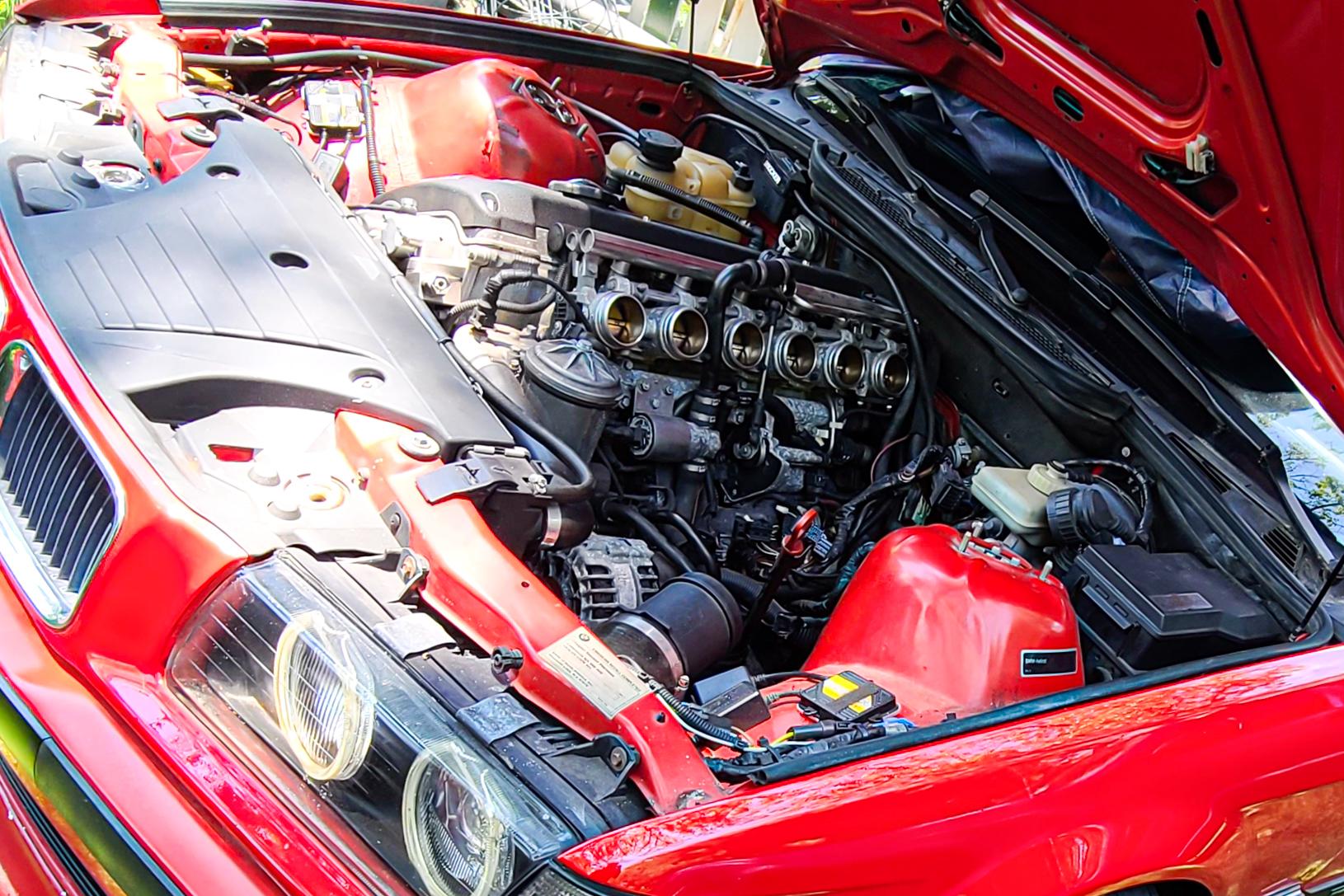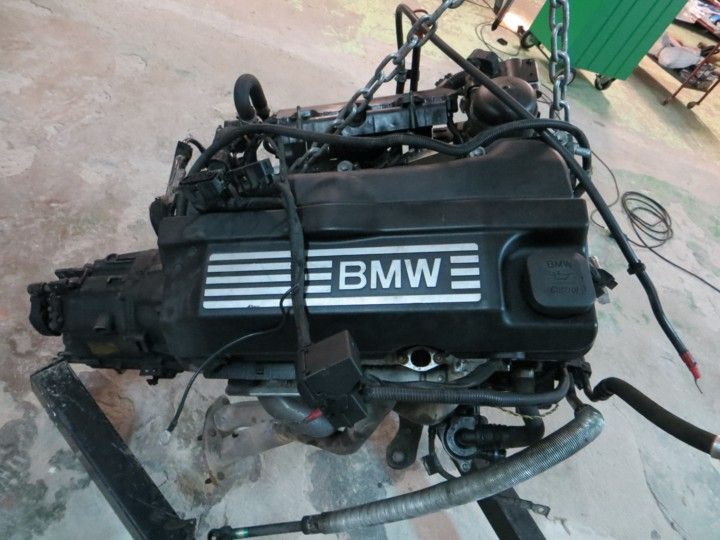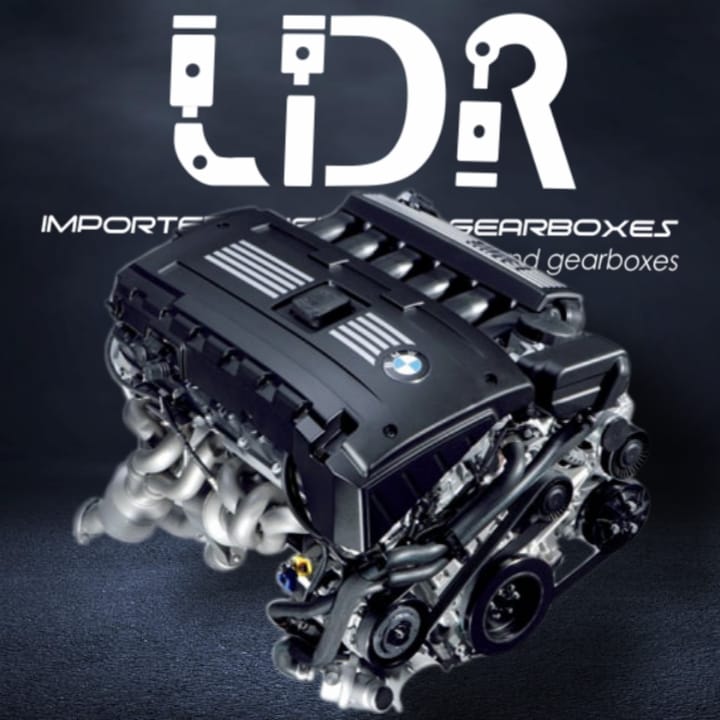BMW 318ti: A Classic Compact with Timeless Allure
Wiki Article
Secret Attributes to Seek When Acquiring an Engine for Automotive Applications
When considering the acquisition of an engine for automobile applications, several key attributes warrant mindful examination to make sure optimal efficiency and capability. From power and performance capabilities to fuel sturdiness, adherence, and performance to discharges standards, each aspect plays a critical duty in determining the engine's viability for particular auto demands.Power and Efficiency
When selecting a vehicle engine, buyers focus on power and performance to guarantee optimal driving experience and performance. The power outcome of an engine, typically gauged in horsepower (HP) or kilowatts (kW), dictates the velocity, full throttle, and overall capacities of a vehicle. Higher power ratings typically lead to quicker acceleration and far better efficiency, especially throughout overtaking or carrying heavy lots. Performance, on the various other hand, incorporates a broader spectrum of qualities, including fuel performance, exhausts, integrity, and overall driving characteristics. A well-performing engine not just provides power efficiently yet additionally runs efficiently across different speed arrays and driving problems.Purchasers typically consider the engine's torque outcome alongside its power rating. Torque, determined in pound-feet (lb-ft) or Newton-meters (Nm), shows the engine's rotational force, influencing the automobile's capability to tow, climb inclines, and speed up from standstill. An equilibrium in between power and torque is essential for attaining a receptive and flexible driving experience. Additionally, aspects such as engine turbocharging, crossbreed, and variation modern technologies play considerable roles in boosting both power and performance levels. Inevitably, selecting an engine that supplies a potent mix of power and efficiency ensures a satisfying and effective driving experience. bmw 318ti.
Fuel Performance
Optimizing gas effectiveness is an extremely important consideration for consumers when assessing vehicle engine alternatives. Modern engines with features like direct fuel injection, turbocharging, and variable valve timing can dramatically enhance fuel effectiveness by enhancing burning procedures and lowering power loss.

Resilience and Reliability
Attaining lasting efficiency and trustworthy procedure is necessary for consumers evaluating the durability and integrity of vehicle engines. When considering an engine for automotive applications, longevity refers to the engine's capacity to withstand wear, anxiety, and harsh operating conditions over an extensive period. Dependability, on the various other hand, implies that the engine can constantly perform its designated feature without unexpected malfunctions or failings.Consumers ought to seek engines constructed with premium products and precise engineering to make certain longevity. Parts such as crankshafts, pistons, and bearings need to be durable to handle the engine's power outcome without premature wear. Furthermore, engines equipped with sophisticated air conditioning systems, effective lubrication, and durable filtration mechanisms have a tendency to display higher levels of dependability.
Routine upkeep and adherence to producer referrals are likewise essential factors in preserving an engine's resilience and dependability. By complying with maintenance schedules, using recommended fluids, and resolving any issues promptly, customers can optimize the life expectancy and performance of their automobile engines. Ultimately, prioritizing durability and integrity in engine option can lead to a more enjoyable possession experience with fewer unexpected interruptions.
Exhausts Compliance
Ensuring conformity with discharges policies is an important facet of examining automobile engines for environmentally aware customers. With increasing problems regarding air quality and ecological influence, rigorous exhausts criteria have been established worldwide to reduce dangerous contaminants launched into the ambience. When buying an engine for automotive applications, it is crucial to consider its discharges compliance to decrease the carbon footprint and abide by legal needs.Modern engines are furnished with innovative discharge control modern technologies such as catalytic converters, exhaust gas recirculation (EGR) systems, and selective catalytic decrease (SCR) to minimize hazardous exhaust gases like nitrogen oxides (NOx), carbon monoxide gas (CO), and hydrocarbons (HC) These systems play a vital role in making sure that the engine meets the specified exhausts standards and runs within acceptable limits.

Cost-effectiveness
When taking into consideration vehicle engine acquisitions, examining cost-effectiveness is critical for customers looking for both efficiency and worth. Cost-effectiveness in engine acquisition involves even more than simply the initial purchase cost. It includes the total expenses associated with maintenance, fuel usage, and prospective repair work over the engine's life expectancy. Selecting an engine that uses an equilibrium in between lasting financial savings and ahead of time prices can lead to considerable benefits for the consumer.One secret aspect of cost-effectiveness is gas performance. Engines that are created to take full advantage of fuel economic situation can bring about considerable savings over time, especially for people that drive frequently or over long distances. In addition, thinking about the accessibility and price of extra parts and maintenance can add to the total cost-effectiveness of an engine. Ensuring that upkeep and fixings are practical and easily accessible can avoid unanticipated monetary burdens down the line.

Conclusion
To conclude, when buying an engine for automotive applications, it is crucial to think about key features such as power and performance, fuel efficiency, dependability and sturdiness, exhausts conformity, and cost-effectiveness. These variables are crucial in making certain that the engine fulfills the needs of basics the lorry and runs successfully in different driving conditions - bmw 318ti. Making an educated decision based upon these standards will inevitably cause a effective and effective vehicle engine purchaseFrom power and performance capabilities to sustain adherence, performance, and sturdiness to exhausts requirements, each aspect plays a critical function in determining the engine's viability for particular automotive demands. Engines created to run on alternative gas such as electric power, crossbreed check out this site systems, or biofuels can provide improved fuel economy and reduced emissions contrasted to traditional gas or diesel engines. Consumers must carefully consider the gas efficiency rankings and technologies included into vehicle engines to make informed getting decisions that line up with their top priorities for cost financial savings and sustainability.
When considering an engine for vehicle applications, durability refers to the engine's capacity to endure wear, stress and anxiety, and harsh operating problems over an extensive period.In final thought, when acquiring an engine for automotive applications, it is important to take into consideration key functions such as power and efficiency, gas longevity, reliability and efficiency, exhausts conformity, and cost-effectiveness.
Report this wiki page